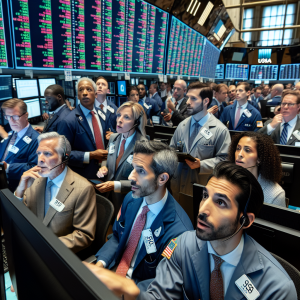The Monetary Authority of Singapore (MAS) has announced a significant easing of its monetary policy in response to a forecasted slowdown in economic growth throughout 2025. This decision reflects the ongoing challenges posed by global economic conditions, particularly the deceleration of growth in major economies, including Singapore’s key trading partner, China. As a result, MAS is recalibrating its strategies to foster economic stability while navigating these external pressures.
The MAS has been closely monitoring the evolving economic landscape, which has shown signs of moderation in growth due to various factors. Global supply chain disruptions and a slowdown in global demand have contributed to this trend. Despite these challenges, Singapore’s economy has demonstrated resilience, buoyed by strong fundamentals and proactive policy measures. The labor market remains relatively robust, although there are indications of easing, consistent with the global trend of labor market normalization following the pandemic.
MAS’s Monetary Policy Adjustments
In light of the weaker growth outlook, the MAS has opted for a cautious approach in its monetary policy adjustments. The central bank is focusing on maintaining a delicate balance between supporting growth and controlling inflation. This strategy aligns with the broader global trend where central banks, including the Federal Reserve in the United States, are grappling with the complexities of inflation management amid uncertain economic conditions.
One of the MAS’s primary tools in its monetary policy framework is the calibration of its exchange rate policy. This is particularly crucial for Singapore, given its open economy that is highly sensitive to exchange rate fluctuations. The recent policy moves by the MAS indicate a commitment to ensuring that the Singapore dollar remains aligned with economic fundamentals, thereby supporting export competitiveness and managing imported inflation.
The Road Ahead
Looking forward, Singapore’s economic policymakers are prioritizing a stable and sustainable growth trajectory amid the prevailing global uncertainties. The MAS’s vigilant and responsive stance towards domestic and international economic developments will be essential in navigating the challenges of weaker growth. As the global economic landscape continues to evolve, Singapore’s ability to adapt its policy framework will play a pivotal role in ensuring long-term economic resilience.
In conclusion, the MAS’s easing of monetary policy reflects a proactive response to the anticipated slowdown in growth for 2025. By focusing on stability and adaptability, Singapore aims to maintain its economic strength in the face of external challenges, ensuring that it remains well-positioned for future growth.




